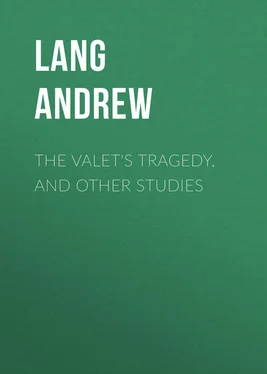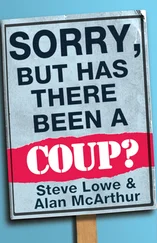Andrew Lang - The Valet's Tragedy, and Other Studies
Здесь есть возможность читать онлайн «Andrew Lang - The Valet's Tragedy, and Other Studies» — ознакомительный отрывок электронной книги совершенно бесплатно, а после прочтения отрывка купить полную версию. В некоторых случаях можно слушать аудио, скачать через торрент в формате fb2 и присутствует краткое содержание. Издательство: Иностранный паблик, Жанр: foreign_antique, foreign_prose, на английском языке. Описание произведения, (предисловие) а так же отзывы посетителей доступны на портале библиотеки ЛибКат.
- Название:The Valet's Tragedy, and Other Studies
- Автор:
- Издательство:Иностранный паблик
- Жанр:
- Год:неизвестен
- ISBN:нет данных
- Рейтинг книги:4 / 5. Голосов: 1
-
Избранное:Добавить в избранное
- Отзывы:
-
Ваша оценка:
- 80
- 1
- 2
- 3
- 4
- 5
The Valet's Tragedy, and Other Studies: краткое содержание, описание и аннотация
Предлагаем к чтению аннотацию, описание, краткое содержание или предисловие (зависит от того, что написал сам автор книги «The Valet's Tragedy, and Other Studies»). Если вы не нашли необходимую информацию о книге — напишите в комментариях, мы постараемся отыскать её.
The Valet's Tragedy, and Other Studies — читать онлайн ознакомительный отрывок
Ниже представлен текст книги, разбитый по страницам. Система сохранения места последней прочитанной страницы, позволяет с удобством читать онлайн бесплатно книгу «The Valet's Tragedy, and Other Studies», без необходимости каждый раз заново искать на чём Вы остановились. Поставьте закладку, и сможете в любой момент перейти на страницу, на которой закончили чтение.
Интервал:
Закладка:
*Brief History, iii. pp. 252, 300, 174, 175; State Trials, viii. pp.
1387, 1392, 1393, 1359-1389.
On the whole, it seems that the evidence for murder, not suicide, is much the better, though even here absolute certainty is not attained. Granting Godfrey’s constitutional hereditary melancholy, and the double quandary in which he stood, he certainly had motives for suicide. He was a man of humanity and courage, had bravely faced the Plague in London, had withstood the Court boldly on a private matter (serving a writ, as Justice, on the King’s physician who owed him money in his capacity as a coal dealer), and he was lenient in applying the laws against Dissenters and Catholics.
To be lenient was well; but Godfrey’s singular penchant for Jesuits, and especially for the chief Catholic intriguer in England, was probably the ultimate cause of his death, whether inflicted by his own hand or those of others.
We now study Godfrey’s quandary. On June 23, 1678, the infamous miscreant Titus Oates had been expelled from the Jesuit College of St. Omer’s, in France. There he may readily have learned that the usual triennial ‘consult’ of English Jesuits was to be held in London on April 24, but WHERE it was held, namely in the Duke of York’s chambers in St. James’s Palace, Oates did not know, or did not say. The Duke, by permitting the Jesuits to assemble in his house, had been technically guilty of treason in ‘harbouring’ Jesuits, certainly a secret of great importance, as he was the head and hope of the Catholic cause, and the butt of the Whigs, who were eager to exclude him from the succession. Oates had scraps of other genuine news. He returned to London after his expulsion from St. Omer’s, was treated with incautious kindness by Jesuits there, and, with Tonge, constructed his monstrous fable of a Popish plot to kill the King and massacre the Protestant public. In August, Charles was apprised of the plot, as was Danby, the Lord Treasurer; the Duke of York also knew, how much he knew is uncertain. The myth was little esteemed by the King.
On September 6, Oates went to Godfrey, and swore before him, as a magistrate, to the truth of a written deposition, as to treason. But Godfrey was not then allowed to read the paper, nor was it left in his hands; the King, he was told, had a copy.* The thing might have passed off, but, as King James II. himself writes, he (being then Duke of York) ‘press’d the King and Lord Treasurer several times that the letters’ (letters forged by Oates) ‘might be produced and read, and the business examined into at the Committee of Foreign Affairs.‘** Mr. Pollock calls the Duke’s conduct tactless. Like Charles I., in the mystery of ‘the Incident,’ he knew himself guiltless, and demanded an inquiry.
*Kirkby, Complete Narrative, pp. 2, 3, cited by Mr. Pollock. At the time, it was believed that Godfrey saw the depositions.
**Clarke’s Life of James II. i. p. 518. Cited from the King’s original Memoirs.
On September 28, Oates was to appear before the Council. Earlier on that day he again visited Godfrey, handed to him a copy of his deposition, took oath to its truth, and carried another copy to Whitehall. As we shall see, Oates probably adopted this course by advice of one of the King’s ministers, Danby or another. Oates was now examined before the King, who detected him in perjury. But he accused Coleman, the secretary of the Duchess of York, of treasonable correspondence with La Chaise, the confessor of Louis XIV.: he also said that, on April 24, he himself was present at the Jesuit ‘consult’ in the White Horse Tavern, Strand, where they decided to murder the King! This was a lie, but they HAD met on ordinary business of the Society, on April 24, at the palace of the Duke of York. Had the Jesuits, when tried, proved this, they would not have saved their lives, and Oates would merely have sworn that they met AGAIN, at the White Horse.
Godfrey, having Oates’s paper before him, now knew that Coleman was accused. Godfrey was very intimate with many Jesuits, says Warner, who was one of them, in his manuscript history.* With Coleman, certainly a dangerous intriguer, Godfrey was so familiar that ‘it was the form arranged between them for use when Godfrey was in company and Coleman wished to see him,’ that Coleman should be announced under the name of Mr. Clarke.**
* Pollock, p. 91, note 1.
**Ibid. p. 151, note 3. Welden’s evidence before the Lords’ Committee,
House of Lords MSS., p. 48. Mr. Pollock rather overstates the case. We cannot be certain, from Welden’s words, that Coleman habitually used the name ‘Clarke’ on such occasions.
It is extraordinary enough to find a rigid British magistrate engaged in clandestine dealings with an intriguer like Coleman, who, for the purpose, receives a cant name. If that fact came out in the inquiry into the plot, Godfrey’s doom was dight, the general frenzy would make men cry for his blood. But yet more extraordinary was Godfrey’s conduct on September 28. No sooner had he Oates’s confession, accusing Coleman, in his hands, than he sent for the accused. Coleman went to the house of a Mr. (or Colonel) Welden, a friend of Godfrey’s, and to Godfrey it was announced that ‘one Clarke’ wished to see him there. ‘When they were together at my house they were reading papers,’ said Welden later, in evidence.* It cannot be doubted that, after studying Oates’s deposition, Godfrey’s first care was to give Coleman full warning. James II. tells us this himself, in his memoirs. ‘Coleman being known to depend on the Duke, Sir Edmund Bury (sic) Godfrey made choice of him, to send to his Highness an account of Oates’s and Tongue’s depositions as soon as he had taken them,’ that is, on September 28.** Apparently the Duke had not the precise details of Oates’s charges, as they now existed, earlier than September 28, when they were sent to him by Godfrey.
*See previous note (Pollock, p. 151, note 3.)
**Life of James II. i, p. 534.
It is Mr. Pollock’s argument that, when Godfrey and Coleman went over the Oates papers, Coleman would prove Oates’s perjury, and would to this end let out that, on April 24, the Jesuits met, not as Oates swore, at a tavern, but at the Duke of York’s house, a secret fatal to the Duke and the Catholic cause. The Jesuits then slew Godfrey to keep the secret safe.*
*Pollock, p. 153.
Now, first, I cannot easily believe that Coleman would blab this secret (quite unnecessarily, for this proof of Oates’s perjury could not be, and was not, publicly adduced), unless Godfrey was already deep in the Catholic intrigues. He may have been, judging by his relations with Coleman. If Godfrey was not himself engaged in Catholic intrigues, Coleman need only tell him that Oates was not in England in April, and could not have been, as he swore he was, at the ‘consult.’ Next, Godfrey was not the man (as Mr. Pollock supposes) to reveal his knowledge to the world, from a sense of duty, even if the Court ‘stifled the plot.’ Mr. Pollock says: ‘Godfrey was, by virtue of his position as justice of the peace, a Government official… Sooner or later he would certainly reveal it… The secret… had come into the hands of just one of the men who could not afford, even if he might wish, to retain it.‘* Mr. Pollock may conceive, though I do not find him saying so, that Godfrey communicated Oates’s charges to Coleman merely for the purpose of ‘pumping’ him and surprising some secret. If so he acted foolishly.
*Pollock, p. 154.
In fact, Godfrey was already ‘stifling the plot.’ A Government official, he was putting Coleman in a posture to fly, and to burn his papers; had he burned all of them, the plot was effectually stifled. Next, Godfrey could not reveal the secret without revealing his own misprision of treason. He would be asked ‘how he knew the secret.’ Godfrey’s lips were thus sealed; he had neither the wish nor the power to speak out, and so his knowledge of the secret, if he knew it, was innocuous to the Jesuits. ‘What is it nearer?’ Coleman was reported, by a perjured informer, to have asked.*
Читать дальшеИнтервал:
Закладка:
Похожие книги на «The Valet's Tragedy, and Other Studies»
Представляем Вашему вниманию похожие книги на «The Valet's Tragedy, and Other Studies» списком для выбора. Мы отобрали схожую по названию и смыслу литературу в надежде предоставить читателям больше вариантов отыскать новые, интересные, ещё непрочитанные произведения.
Обсуждение, отзывы о книге «The Valet's Tragedy, and Other Studies» и просто собственные мнения читателей. Оставьте ваши комментарии, напишите, что Вы думаете о произведении, его смысле или главных героях. Укажите что конкретно понравилось, а что нет, и почему Вы так считаете.











